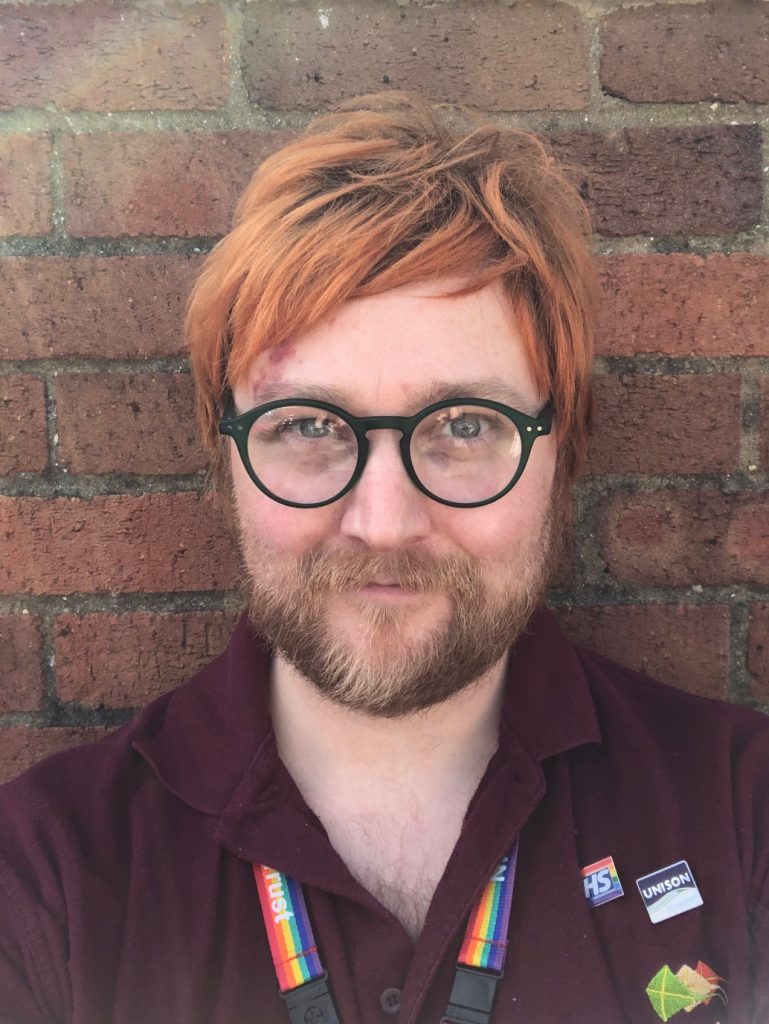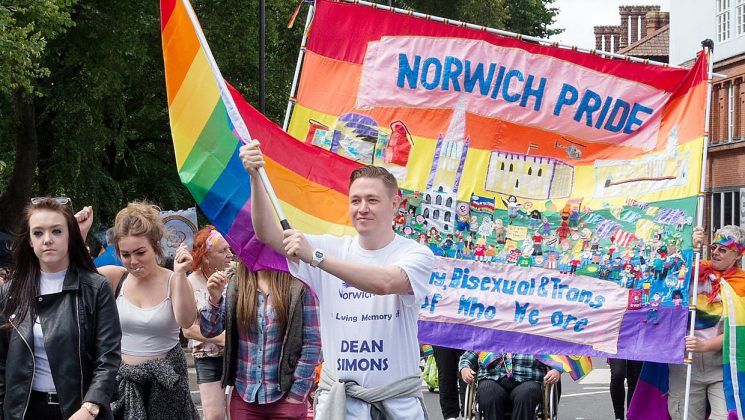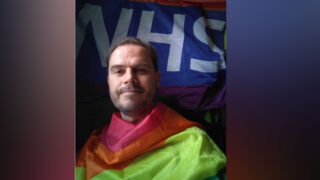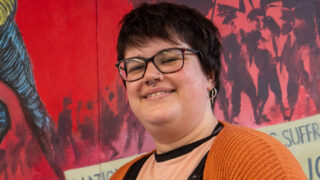Last year was my first Pride march.
It’s not that I’ve not wanted to go on one before, rather that more often than not I’d find myself doing a shift on the ward that day. Our line of work can be immensely fulfilling, but it is complicated, difficult and more than happy to cause disruption when it meets other aspects of our lives.
We may aim to be as authentic and, well, proud, about who we are at work as we are elsewhere, but this is not always straightforward.
Our work is focused on those we care for and give support to, rarely the place for an impromptu presentation of our personal identities and how they inform our worldview or interactions with the world (but does not necessarily define all that we are).
Which is why those rainbow lanyards and badges that we have been wearing this past year are important. They stand in lieu of those conversations that we don’t have the time, energy or appropriate space to have with our colleagues and service users.
They invite our co-workers and patients to assume they are welcome in our places of work and that, even though we don’t have all the details about their lives, we are ready to help them realise their potential and to stand alongside them.

This, for me, is what the trade union movement is all about. When we encouraging people to join UNISON, it can sometimes be too tempting to focus on member benefits or to talk as though we are selling an insurance policy, should you find yourselves in trouble at work.
Trade unions are so much more than that; they are a symbol and commitment to stand in empathy and solidarity with others — we are not all the same, we are not always able to fully understand, but we are here beside you in your struggle.
The physical and educational resources that we can offer our members mean little without this perspective, without this commitment.
I was expecting to be at Norwich Pride again this year with my wife, some friends and some colleagues, but there are no physical marches this year.
I am proud to be part of the LGBT+ community and the trade union community — both of which have a long history of standing in solidarity with the disadvantaged and the oppressed.
To march is to make a symbol, just like that badge, or rainbow lanyard around your neck.
Our marches and parties may have to be virtual this year, but they ready us for the physical parties to come.
The commitment continues, the struggle continues, the iridescent polychromic banners still flying.
Norwich Pride is offering would-have-been marchers the chance to take part in a virtual march on 25 July, you just need to submit a short video of yourself by 10 July.
Check out your local Pride to see what they’re doing to keep the celebration going in your area.
Main pic credit: sasatro/Creative Commons





